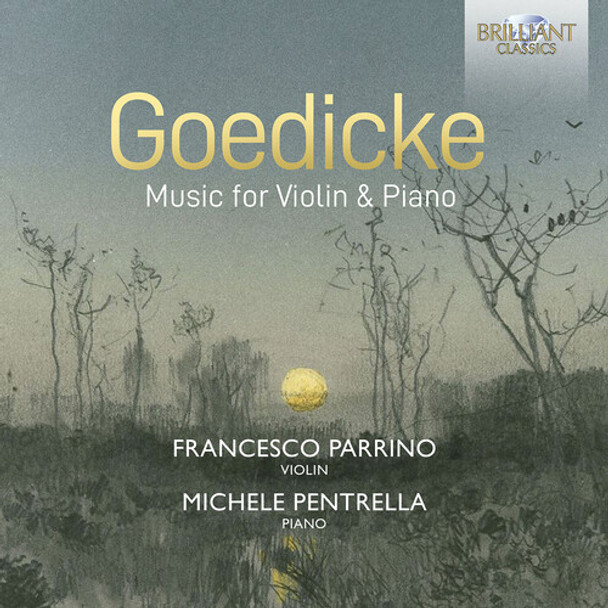BRILLIANT CLASSICS
Goedicke / Parrino / Pentrella Music For Violin & Piano CD
- SKU:
- 42311157
- UPC:
- 5028421959733
- MPN:
- 95973
- Condition:
- New
Description
Goedicke's ephemeral fame was almost completely eclipsed in the Soviet era. He was neither rebel enough to attract the attention of the Western intellectual world, nor ambitious enough to carve out a career within the regime's apparatus. Having completed his conservatory studies, in 1900 he competed as both composer and pianist in the third Rubinstein Competition in Vienna, winning the composition prize with his Konzertstuck for piano and orchestra. Medtner, who also took part in the competition, recalls in his Memoirs that the prize for best pianist was given to the Belgian Emile Bosquet - whom he considered inferior to both himself and Goedicke - because the jury had developed a hostile attitude towards Russian pianists and did not want to bestow two prizes on Goedicke. In fact, Goedicke won in the composers' category with the Violin Sonata Op.10, as well. That Violin Sonata, composed in 1899 is dedicated to Jan Hri?maly?, a Czech violinist and fellow-professor of Goedicke's at the Moscow Conservatory. The sonata's nickname, "Vesennjaja" (spring), is a clear reference to Rachmaninov's song "Spring Waters" Op.14/11, which is quoted at the beginning of the first and the end of the final movement of Goedicke's sonata. But even greater than the influence of Rachmaninov is that of German Romanticism. While Op.10 is a youthful work, the Violin Sonata Op.83, composed between 1948 and 1953, is a clear rebuttal of Tikhon Khrennikov's notorious anti-formalist attacks from a composer shielded behind decades of academic tenure. The sonata reaches far into the past, even to early Beethoven, with a construction so formally impeccable as to seem almost provocatively anachronistic. On the other hand, the 10 Pieces Op.80 are wholly different. Effectively combining pleasant melody and the evocation of childhood, they fit with dignity in a line stretching from Schumann's to Tchaikovsky's Albums for the Young, shedding light on Goedicke's prolific didactic side.
View AllClose






